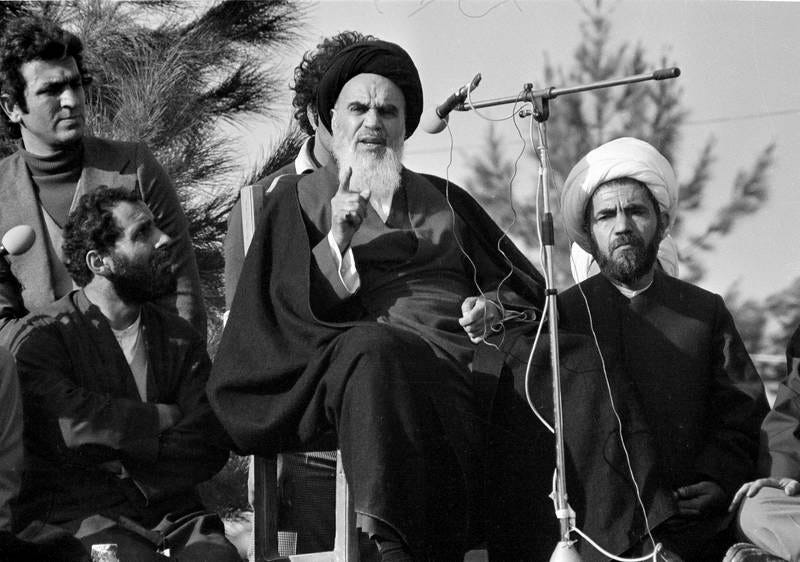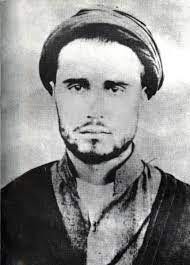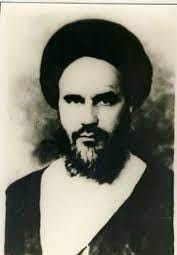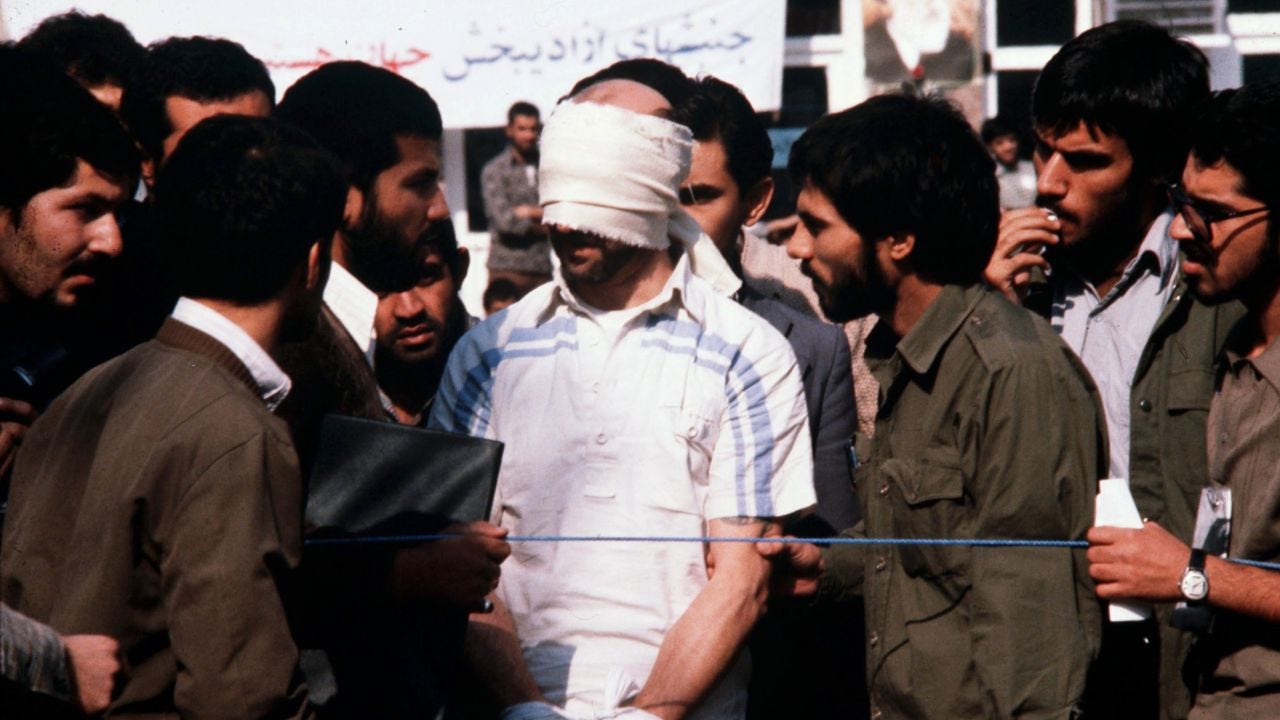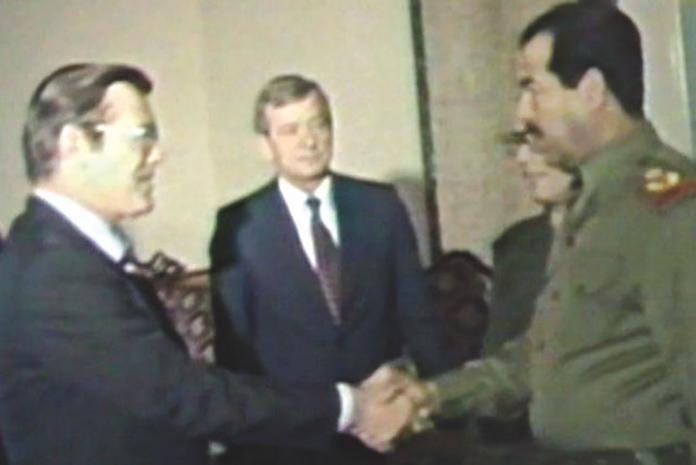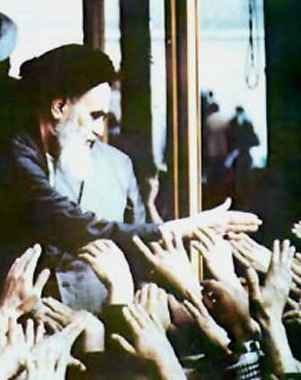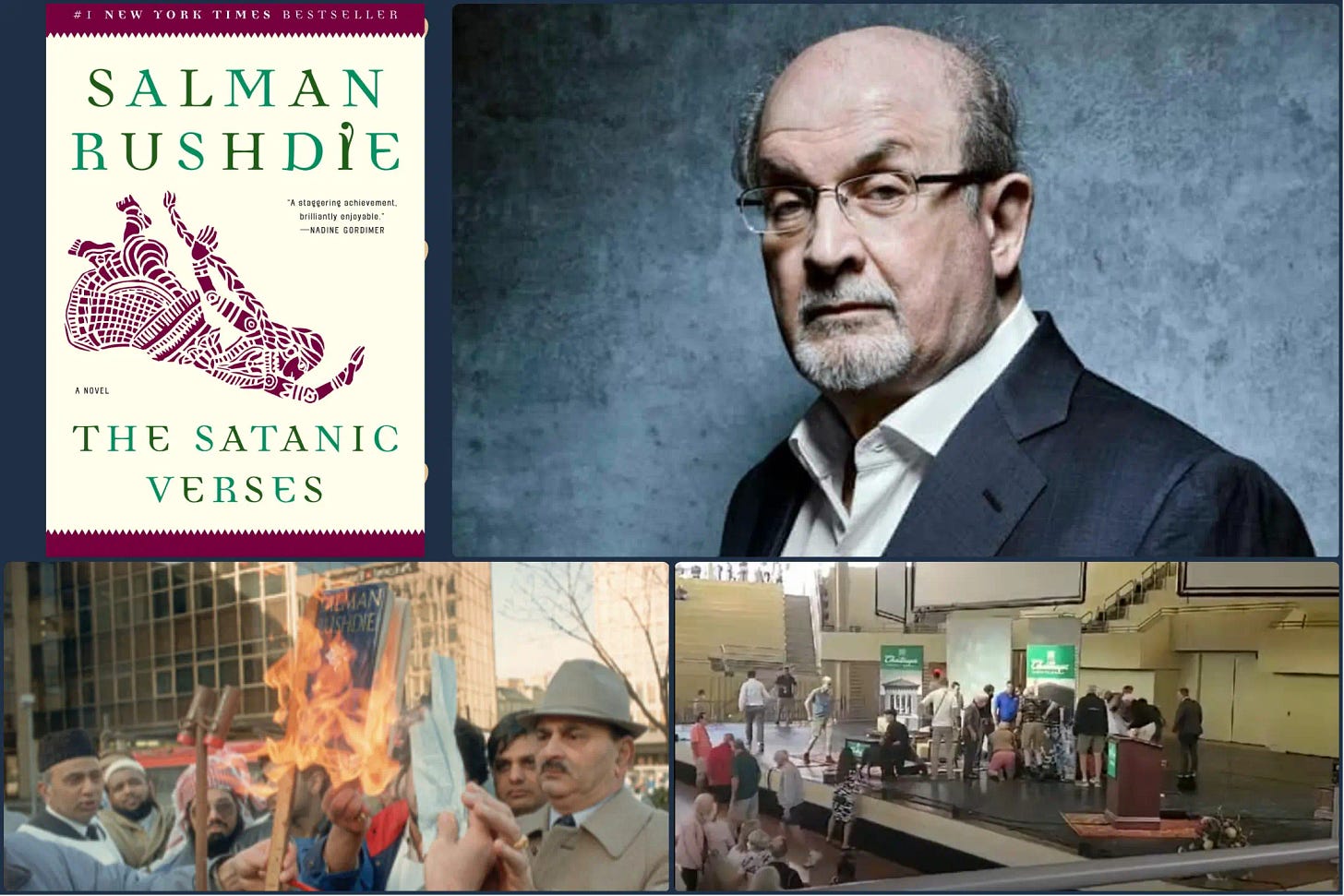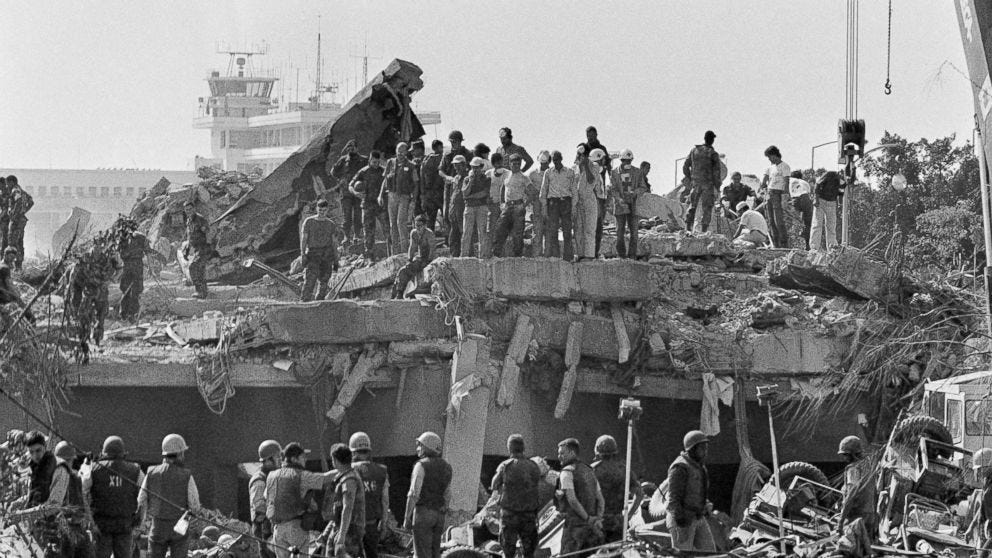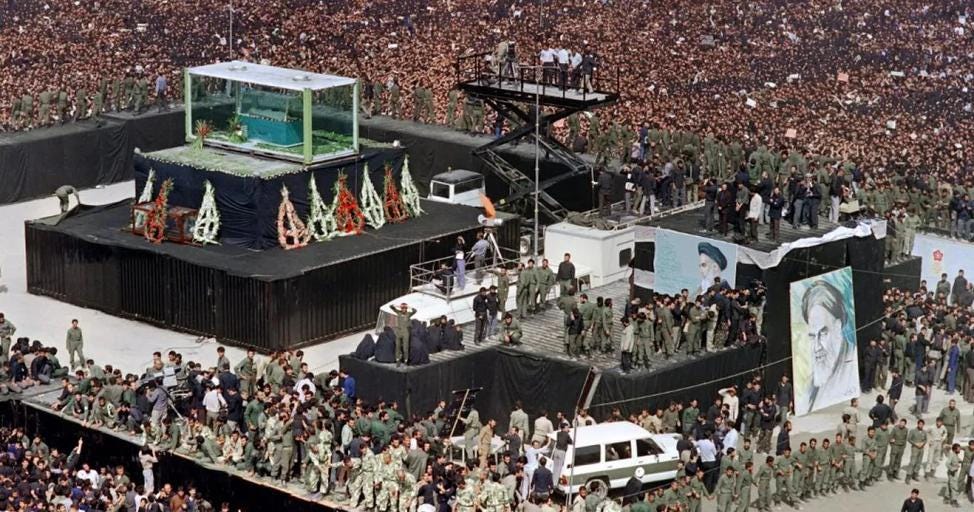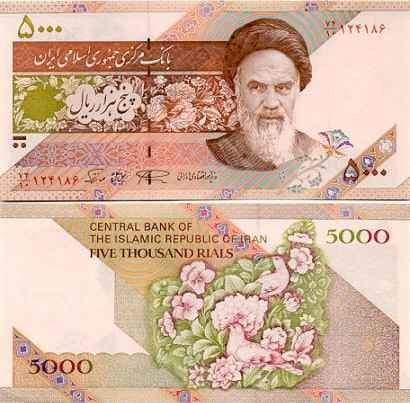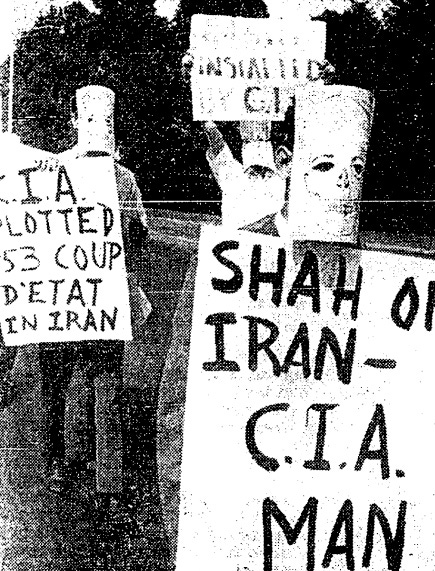Back in 1979, the major enemy of the United States was the Ayatollah Khomeini, religious leader and dictator of Iran, and everyone thought he was a big problem. Man, we had no idea...
Ruhollah Mousavi was born in 1901 or 1902, depending on who you ask, in the town of Khomeyn, from whence his popular name was derived.
By any account, he was a joyless husk of a man. He once told Time Magazine, "There is no room for play in Islam. It is deadly serious about everything."
With deadly serious fervor, he threw himself into the study of Islamic theology and attained the rank of Ayatollah, a religious title designating an advanced scholar but carrying no particular political significance.
In 1962, the monarch of Iran (known as the Shah) passed a bill that allowed municipal officials in the country to take their oaths of office on whatever holy scripture they preferred.
While it might sound like a trivial issue, the move offended Khomeini and other Islamic fundamentalists, who considered the Koran to be the only appropriate swearing mechanism.
It was akin to how American fundamentalists react at the prospect of taking the words "under God" out of the Pledge of Allegiance, only with more rage and less televangelizing.
While the United States has a blase attitude toward protests and boycotts, the monarchy in Iran was less flexible. The order was rescinded, and suddenly Khomeini was a force to be reckoned with. The fallout from the swearing issue led to widespread unrest, as the secular monarchy struggled to contain the strong fundamentalist population.
The Ayatollah was sent into exile in 1964, moving first to Turkey then later to Iraq. From Iraq, he launched a series of vicious verbal attacks on the monarchy, first against the Shah who exiled him and later against his son, who succeeded to the throne.
Khomeini was a Shi'ite Muslim, but his beliefs were an extreme form of the Shi'a creed. From exile, he developed the concept of a theocracy, which dramatically changed what had previously been a largely apolitical branch of Islam.
Shi'ites had practiced something akin to separation of church and state for centuries, but the unpopularity of the Shah's regime prompted many to reconsider, especially when the monarch sent troops to arrest Khomeini and control unrest. In addition to espousing a religious state, Khomeini accused the Shah of pro-Israeli and pro-U.S. sympathies, further inflaming his followers.
Khomeini called for a clerical state to succeed the "corrupt" Shah throughout the 1960s and 1970s, building a power base within the country among his religious followers. In 1978, a series of student demonstrations rocked the Shah's regime, leading to widespread defections from the country's power base, mainly merchants and the middle class. The following year, the Shah fled into U.S. protection and Khomeini seized power.
Although everyone from the Communists to liberal Democrats had supported the revolution, Khomeini shunted aside everyone except those who embraced his vision for a political Islam. He appointed himself Supreme Ruler, with a "parliament" made up of clerics who took their marching orders from Tehran.
Khomeini instituted a strict regime of Islamic law, ordering women to wear veils and suspending the criminal justice system in favor of religious courts. A democratic apparatus was put into place, but for appearances only, much like the British monarchy.
In November 1979, a group of student radicals overran the U.S. embassy and took everyone inside hostage, with Khomeini's support, in retaliation for the U.S. agreeing to shelter the Shah. The crisis lasted for more than a year, paralyzing Jimmy Carter's presidency and eventually contributing greatly to his loss to Ronald Reagan in the 1980 election. After the Shah died, the hostages were released on Jan. 20, 1981, the day of Reagan's inauguration.
Reagan wasn't one to take aggression lightly; his brilliant response to the threat he perceived from Iran was to arm Saddam Hussein with conventional, chemical and biological weapons and unleash him on America's enemy. That'll teach him!
Hussein had seized power in neighboring Iraq at about the same time Khomeini made his grab in Iran. Naturally, the two despised each other. In 1980, Iraq invaded Iran. The war lasted nearly eight years, depleting the resources of both countries. The Soviets surreptitiously aided Iran even, as U.S. envoys like Donald Rumsfeld spread goodwill in Baghdad, because you just can't have enough proxy wars to satisfy some people.
U.N. brokered a peace agreement to end the Iran-Iraq war in 1988. By then, Khomeini had become a quaint sort of evil Hollywood-style icon, not dissimilar to Fidel Castro. While Saddam Hussein stepped up to the plate as the hot, young despot du jour, Khomeini began actively supporting international terrorism.
At the end of the Iran-Iraq war, Khomeini faced a public that had been demoralized by massive casualties and a peace agreement which amounted to an outright defeat. To cheer up the masses, the normally humorless cleric decided to have a little fun and issued a fatwa, or religious edict, calling on Muslims everywhere to kill an obscure, semi-talented author named Salman Rushdie for writing a tepid book called The Satanic Verses:
"The author of the Satanic Verses book, which is against Islam, the Prophet and the Koran, and all those involved in its publication who were aware of its content, are sentenced to death. I ask all Moslems to execute them wherever they find them."
Rushdie wasn't a Shi'ite, nor was he Iranian. The proclamation was ludicrously, outrageously inconsistent with any reasonable reading of Islamic and international law, but it was a great excuse to fight, so a lot of people got really upset about it (especially Rushdie, whose life was essentially ruined by the order). Khomeini's status at home as lead hellraiser was secured.
The proclamation was also groundbreaking in the politicization of fatwas. Khomeini had previously abused the fatwa to deliver death sentences to thousands of his domestic political opponents, which was already a gross distortion of the original concept of the fatwa. The precedent set by Khomeini was subsequently exploited by Osama bin Laden, who issued religious edicts that purported to give the force of Islamic morality to his politically motivated attacks on the United States.
Certainly, Khomeini holds much more responsibility for the rise of international terrorism and attacks on U.S. interests than his neighbor, Saddam. In addition to the whole fatwah thing, Iran sponsored several conferences in the late 1980s, which brought together the leadership of several Islamic extremist groups, including the future leaders of al Qaeda, according to terrorism expert Yossef Bodansky.
Tehran attempted to place itself squarely at the center of the world of terrorism, with qualified success. Although Khomeini succeeded in provoking and supporting some terrorism overseas, the Iranian effort was overshadowed by the rise of al Qaeda in the mid-1990s, under the leadership of his fellow crazy ideologue, bin Laden.
Just a few months after sentencing Rushdie to death, Khomeini himself died of prostate cancer in June 1989. Although the man died, the revolution lived on.
Doubtless he would have been disappointed by Iran's expression of sympathy to the United States on September 11, and he probably would have been infuriated by the fact that Iran is currently trying to patch up relations with the U.S. in order to avoid being the next target of George W Bush's wrath.
But the Ayatollah is still remembered as a hero by the government officials who purport to speak for the people of Iran. Will there ever be another ayatollah? Well, nearly half of all Iraqis in a recent poll favor creating an Islamic state... Salman Rushdie better watch his back...
I hope people never forget that the reason that there’s an islamic fundamentalist state in Iran today is because Eisenhower sent Kermit Roosevelt and the CIA to overthrow the government to protect the interests of British Petroleum and it permanently fucked up the country.




